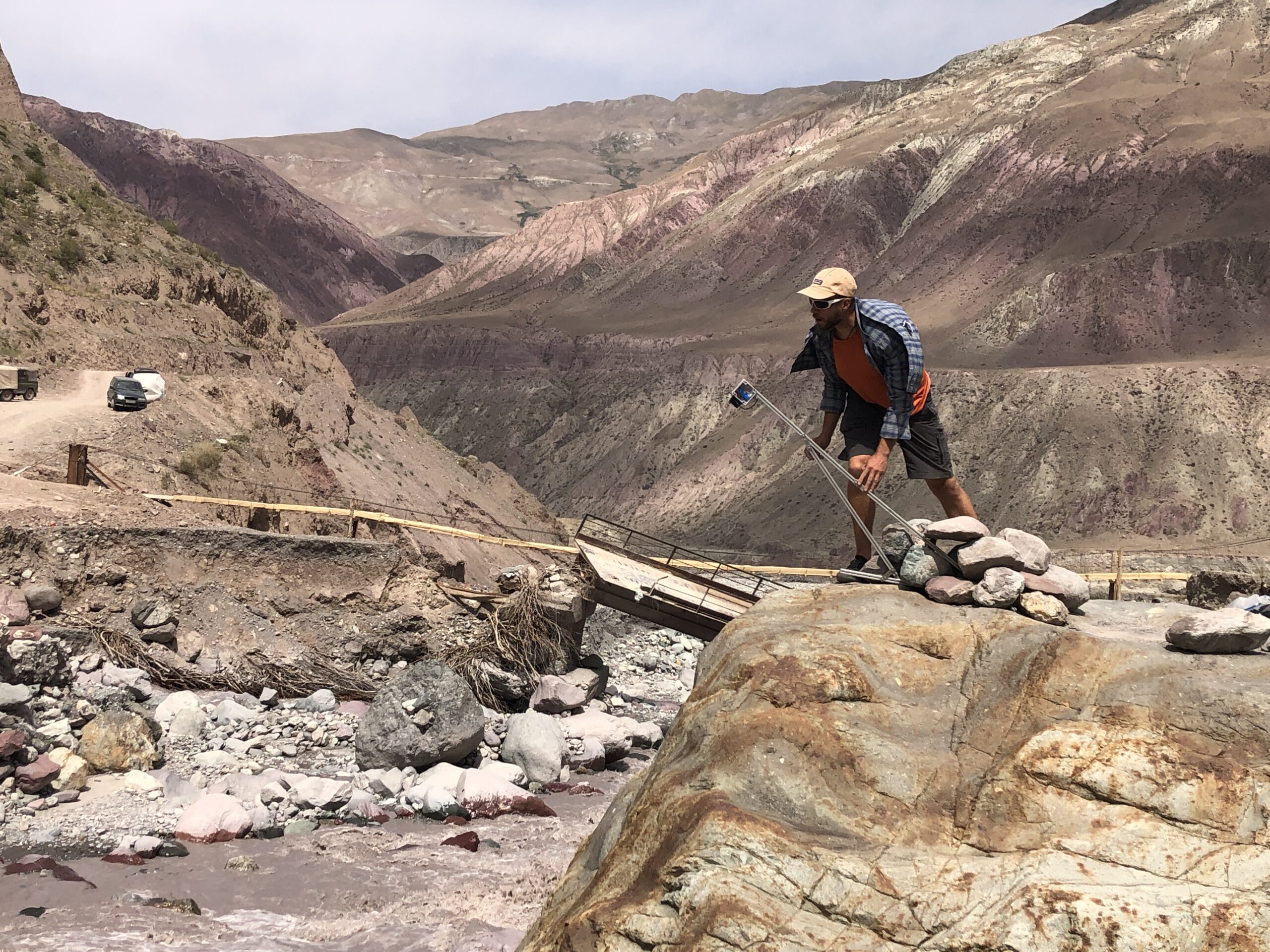Nonlinear thoughts / Kyzylsu, Tajikistan, September 2022 – Céline Ducret
The surroundings are painted with shades of brown and orange, as if the land was dipped in a warm, earthy palette. The air is thick with dust, possibly from a mix of sand and soil. The mountains in the distance appear simultaneously immense and small, playing tricks on our sense of scale. Distance and weight seem to lose their meaning, as if we stepped into a new realm filled with debris, parched grass, an endless expanse of sky, and utter silence.
Silence? No, this is no silence. It’s an extreme variety of waves that my auricle can’t even catch and feel.
A breeze. A gentle breeze on the rocks. Zephyr? A tiny cracking noise. Or is it something else entirely? This faint noise is interrupting my thoughts, making me wonder if a stone tumbled down nearby, or if an animal wandered past. Perhaps it is simply my own breath, escaping from my lungs and mingling with the quiet surroundings. Or maybe, just maybe, it is the sound of an imaginary creature, lurking in the wilderness.
I find myself lost in the moments, detached from the notion of days and time. The only thing that truly matters is living in sync with the sun’s trajectory. As the sun descends behind the mountains, the air grows colder and colder, and the galaxy emerges in all its splendour. And there is one ultimate luxury that I treasure above all else: brushing my teeth under the twinkling expanse of the Milky Way.
For some days, our humble green tent has served as our home away from home, our castle, our sanctuary, and at times, our freezer, but our personal freezer. But it is also the place where we can finally revel in the comfort of our sleeping bags after a long day.
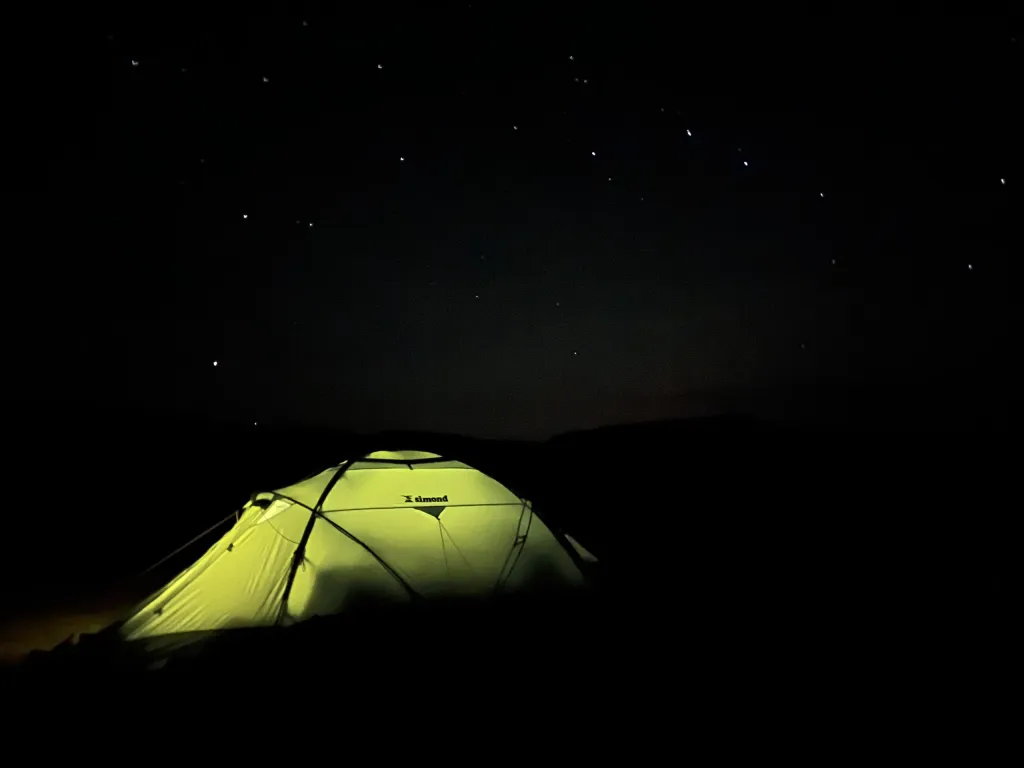
The silence is broken by some far away noises, people chatting and music playing from a phone.
04:57. The sky is gently opening itself to the colours of the day. The lake, as a mirror, is reflecting this very specific shade of baby blue. The shades of colours are overwhelming, somehow new to my eyes day after day. How can I transcribe them?
The wind is blowing, the tent fabric is snapping and fluttering in the air. We are now covered in a layer of dust, tinted with shades of orangey-brown. The dust settled on everything, leaving a crisp, textured feel on the surfaces.
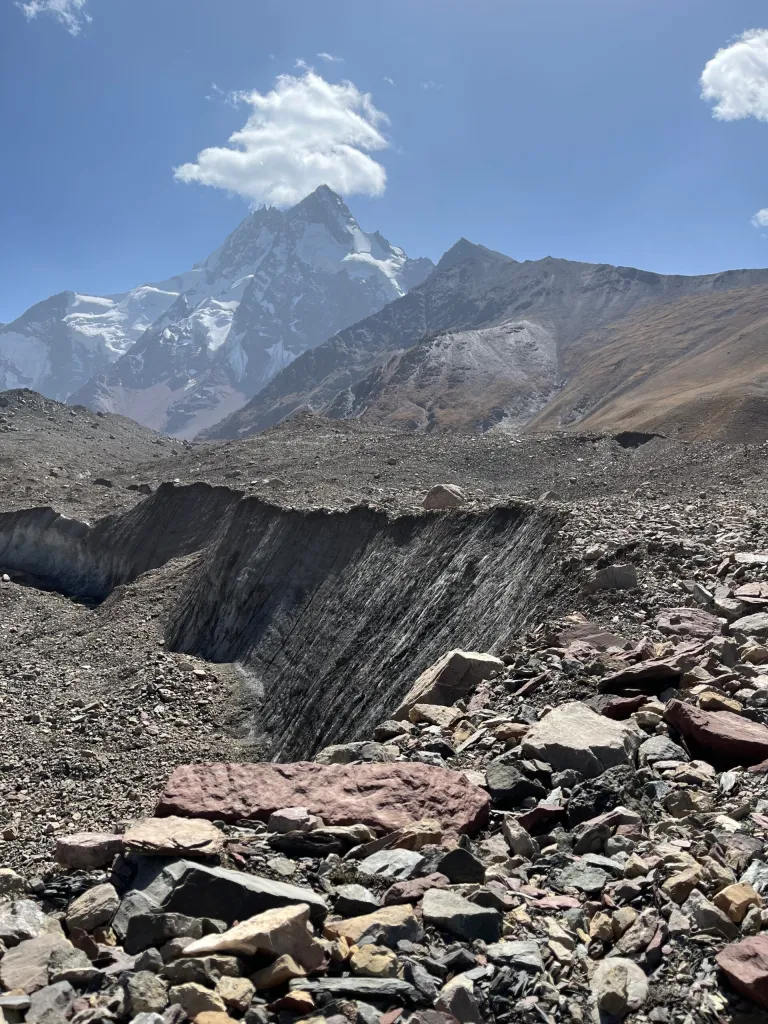
Having spent the past few days surrounded by rocks, I am amazed by the sight of the massive ice cliffs that lay beneath the debris. In some places, the ice experienced colossal collapses, revealing its majestic form. The ice appears to be frozen and yet somehow warm, with droplets of water leaking out and the sensation of heat emanating from within, almost as if it were boiling.
Will I fit under this crack of ice? Shall I go? What are the chances that something falls on me? We check the surroundings, it seems alright. Let’s go for it.
As I crawl through the murky water, a mixture of debris, ice, sand, and mud, I feel gradually immersed in the environment. The cold water is flowing along the ice, carving its own path, and creating a tranquil yet ominous sound. Suddenly, the silence is broken by the sound of rocks collapsing nearby. I have no concept of how much time has passed – time is measured by the steady dripping of water, a geological time that is far removed from the constraints of 24-hour cycles. As I am recording the sounds of the dripping water, it feels as if I am capturing a single, frozen moment – a droplet of water or a breath of ice?
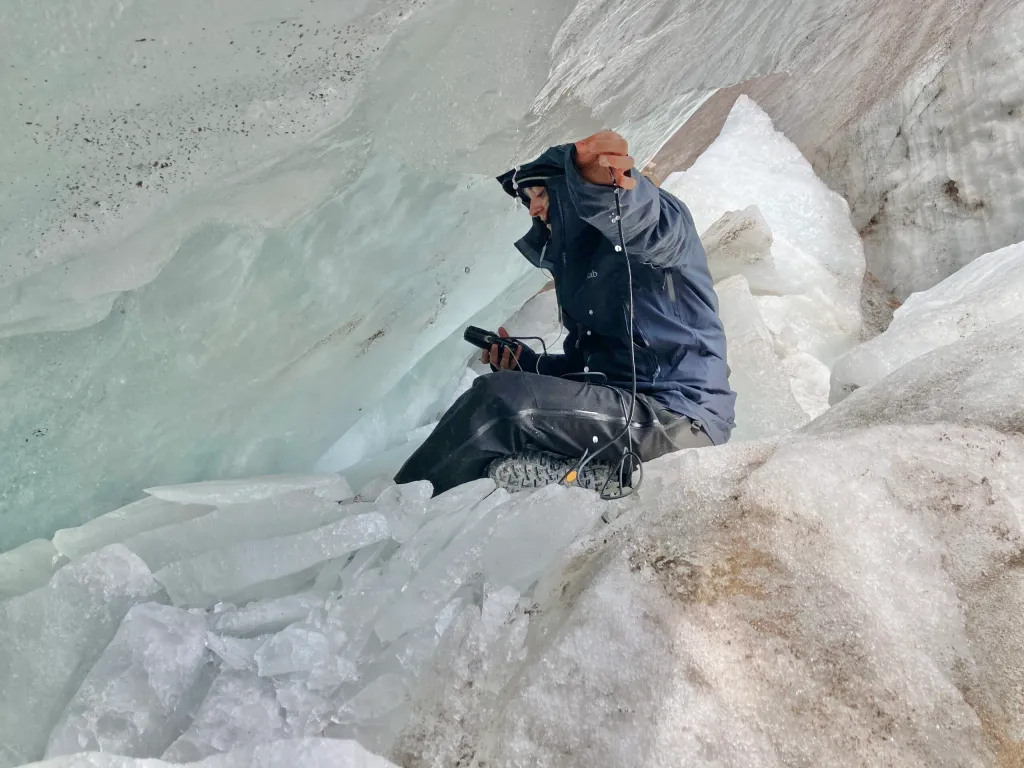
The unfolding chain of events in front of me is a representation of the transformative power of geological processes – from gas to solid to liquid, the ice is undergoing continuous change. It is impossible for me to know the age of this ice, but as I watch the bubbles of air retracting away, I know that they hold stories of the past, perhaps even a requiem for a time long gone. As fluids become more fluid, time and scale become non-human, and I find myself questioning how we as humans fit into this vast framework. As I touch the ice and feel the cold water dripping on my face, I realise that my body is intimately connected to the landscape – my blood pumping inside my veins, echoing the rhythm of the drops leaking all around, like the ice itself. In this moment, I am acutely aware of my own insignificance in the face of the vast, powerful forces of nature that surround me. I move quietly, trying to make as little noise as possible, hoping to blend in with the landscape and become one with it.
Look there! (in a little whisper, I hear Martin’s voice next to me)
While I try to look in the correct direction as quickly and as quietly as possible, I see a puffy white tail in the middle of the dry bushes. We are in the snow fox’s territory, a reminder that we are merely visitors in this wild and untamed landscape.
As I walk, the rocks beneath my feet crumble and make a satisfying crackling sound. Layer after layer of rock is dismantled with each step I take. I ascend and descend the rugged terrain, my body and mind completely absorbed in the wonders around me. I lose myself in, looking at their colors, the multitude of shapes, unknown angles, touching them to discover some textures unknown to my hands.
After a few hours of hiking, we reached the top, sweating. While we were hiking, the weather changed to become colder and windier. While the team was installing everything, it started to snow, the blizzard took over, the wind went virally intrusive, and the temperature dropped. Altitude 4500.
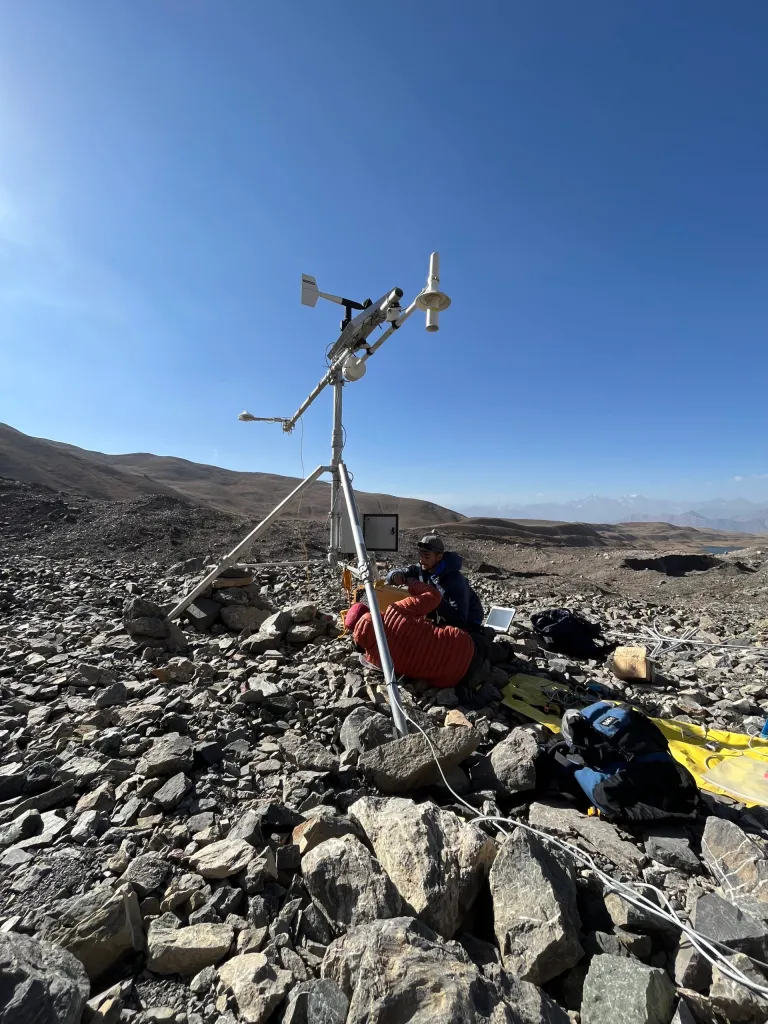
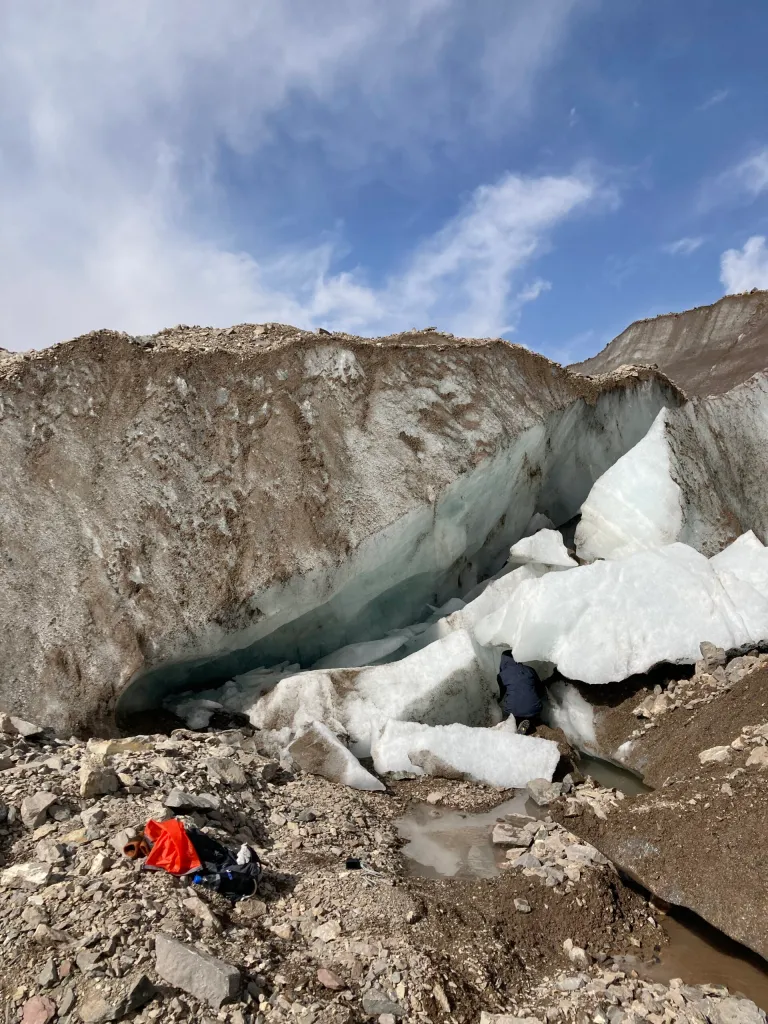
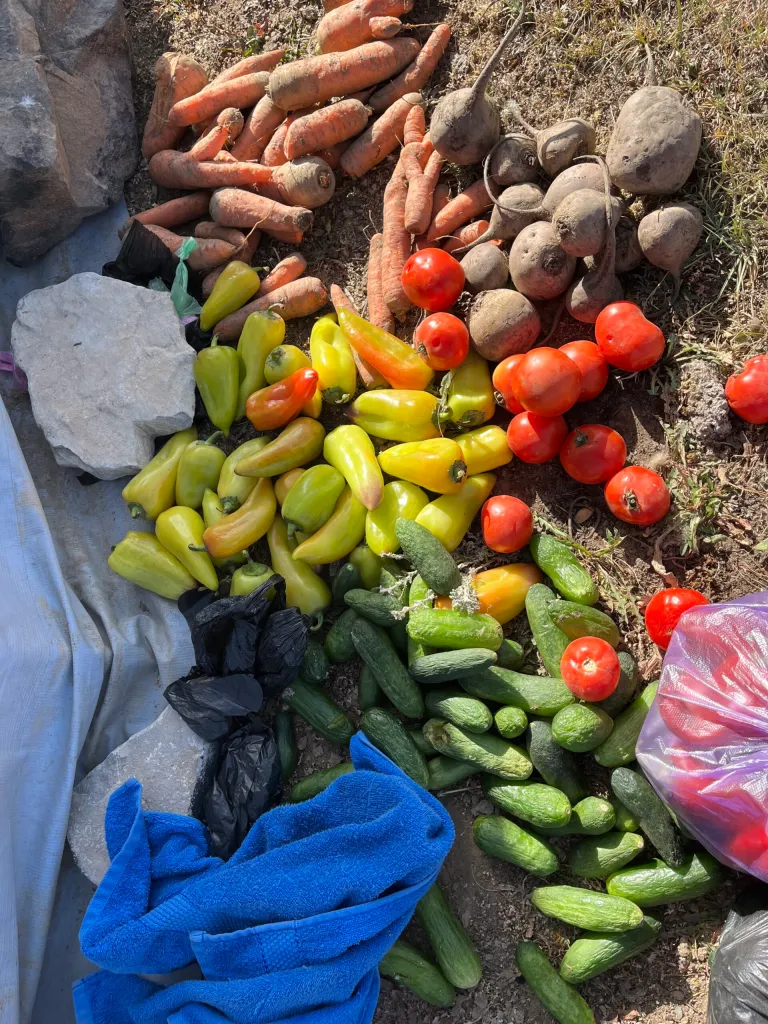
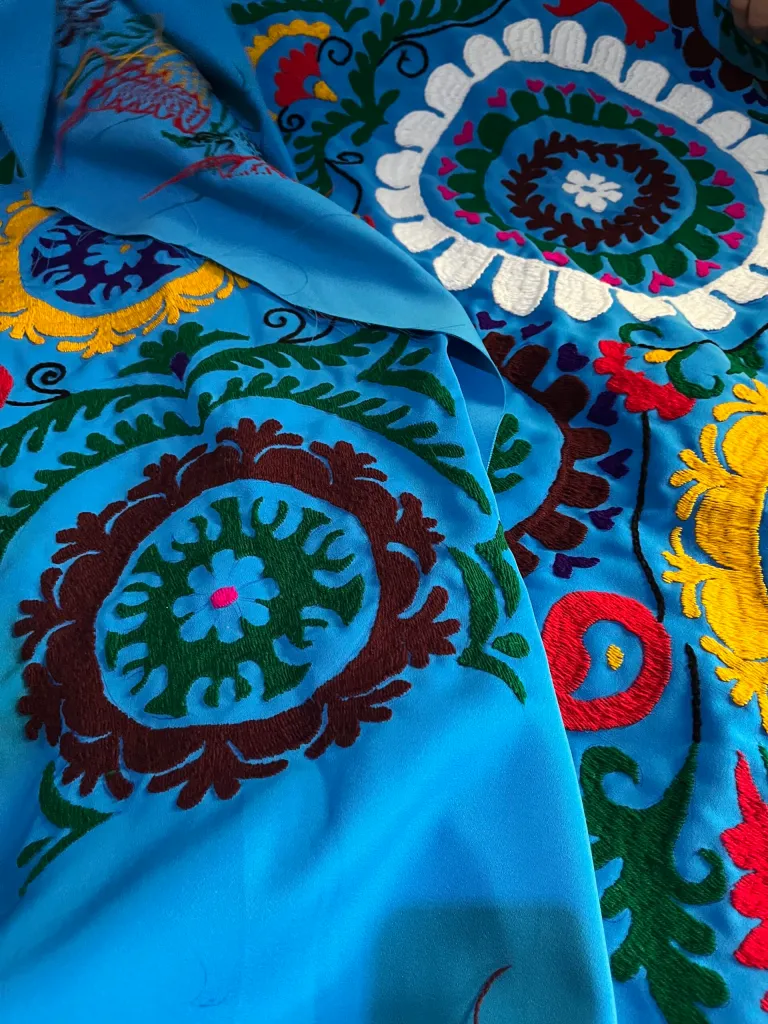
The silence strikes me. A pure silence. The sky is enormous. I do not know where to look anymore. The Milky Way tracing its way inside the immensity.
19:55. Made it to the sleeping bag. We hiked all day. Found some stones and boulders. Touching the rocks, feeling it, made me closer to our surrounding landscape. While we crossed the small swamp, I had no choice but to remove my shoes. Each step my feet got deeper and deeper in the mud. I was so cold around my feet and ankles, pins and needles sticking inside my flesh. There is no more me and the surrounding, I am submerged inside it.
It’s a juxtaposition of the tangible and intangible, the physical and the emotional. Technology is capturing data, facts, and figures, while our human experience is filled with emotions, sensations, and feelings. It’s a unique and remarkable intersection where the known meets the unknown. And as we stand there in the middle of all this, I become acutely more aware of the fragility of our environment, and how easily it can be impacted by our actions. It’s both the end and the beginning of the world – the end of the world as we know it, and the beginning of a new world that we are yet to adapt to and to apprehend.
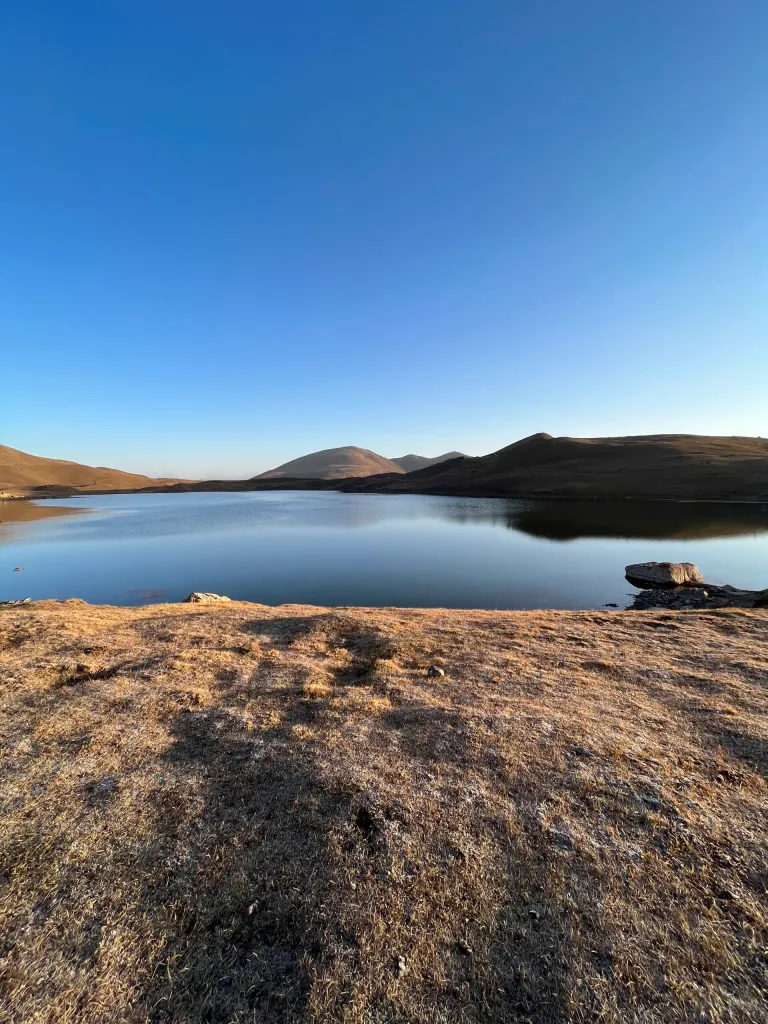
Participating in this expedition was an immense privilege. I extend my heartfelt gratitude to everyone involved in this expedition, both near and far. Thank you to Francesca Pellicciotti’s HIMAL group for taking me on board, special thanks to Stefan Fugger, Achille Jouberton and Evan Miles, to Thomas Shawl for the trip in Corbassière, to Khusrav Kabutov, Hofiz Nuvruzshoev, Ardamarh Halimov and Firdavs Vosidov and the Tajik team, to Muhayo and the Gulzar Village teamand to all of you whose paths I crossed during this project, for your time and willingness to share about your work and stories. Thank you to Marie Schumann and Martin Heynen for being part of this. This would not have been possible without the support of Pro Helvetia and the Swiss Polar Institute, through the project PolARTS.
Céline Ducret joint the PAMIR team during the summer of 2022. Céline is a multidisciplinary artist and beneficiary of the PolARTS funding scheme, a joint initiative of the Swiss Arts Council Pro Helvetia and the Swiss Polar Institute.
